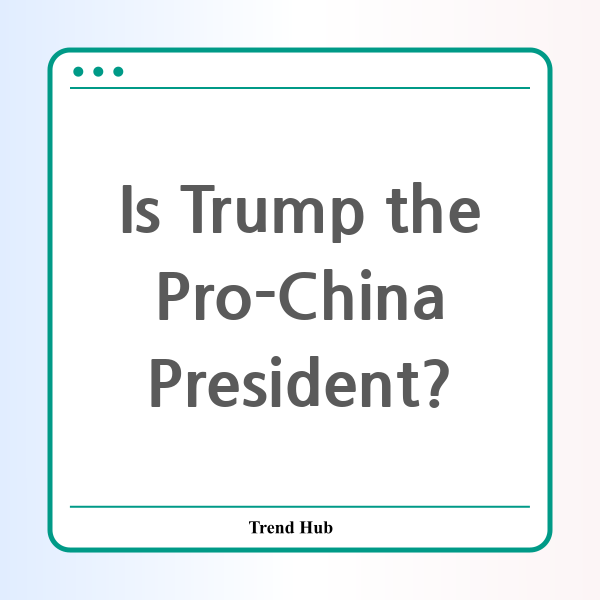* This website participates in the Amazon Affiliate Program and earns from qualifying purchases.

As we navigate through the complexities of global politics, one question stands out: Is President Trump shaping up to be the pro-China leader he once vowed to oppose? In recent months, various actions taken by the Trump administration have raised eyebrows and prompted discussions about the implications of his policies on U.S.-China relations and global stability.
At the start of his second term, Trump has made moves that some analysts argue could inadvertently strengthen the Chinese Communist regime. By imposing tariffs and threatening allies, his approach has left many experts questioning the long-term impact on America's standing in the world.
During his first term, Trump campaigned on an "America First" platform, aiming to outcompete China and curtail its influence on the global stage. However, his recent dealings have painted a different picture, showcasing a more conciliatory stance toward Beijing at a time when many anticipated a more confrontational approach.
For instance, Trump's administration has been accused of neglecting humanitarian and economic aid programs that are crucial for countries seeking to reduce their reliance on China. By gutting these programs, America risks ceding influence to China, which has been keen on establishing its dominance in regions such as Latin America and Africa.
Additionally, the decision to impose hefty tariffs on allies like Canada and Mexico over issues of drug imports has raised concerns. While these moves are intended to pressure these nations into compliance, they may instead lead to a greater alienation from traditional partners, pushing them closer to China's embrace.
China has consistently sought to fill any power vacuum left by a perceived lack of American leadership. With Trump's focus seemingly shifting back and forth between punitive measures and invitations to negotiate, foreign diplomats are beginning to rethink their relations with the U.S. Many are now more likely to engage with China or other non-Western powers, as threats from the Trump administration may result in short-term compliance but can ultimately damage long-term trust between nations.
Furthermore, Trump's mixed signals have led to uncertainty about America's commitment to its allies and trade partners. His threats of tariffs against the European Union could undermine efforts to unify against China and further complicate the already fragile dynamics of international relations.
Despite the tariffs and tough rhetoric, analysts believe that these measures may not be enough to effectively curb China’s ambitions. Critics argue that while Trump aims to push for new trade agreements, inconsistencies in his policy approach are sowing seeds of doubt among both allies and adversaries.
The crux of the issue lies in the degree of trust the international community has in U.S. leadership. As countries weigh their options amidst a shifting geopolitical landscape, the question remains: Will Trump's strategy ultimately empower China? Without a cohesive and sound foreign policy, America risks losing the foothold it fought so hard to maintain.
As we look ahead, it becomes increasingly vital for the U.S. to adopt a consistent and collaborative approach to international relations if it hopes to counter China's growing influence effectively. The actions taken in the coming months will be critical in defining the future of U.S.-China relations and the overall dynamics of global politics.
* This website participates in the Amazon Affiliate Program and earns from qualifying purchases.